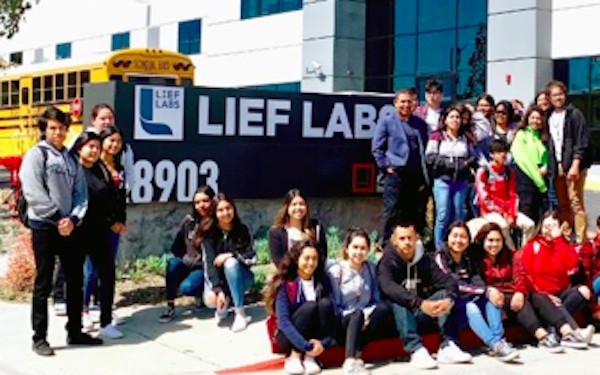Taking secrecy out of contract manufacturing can be a win-win, CEO says

Adel Villalobos, CEO of Lief Labs, said he believes part of the reason for the rapid growth of his contract manufacturing firm is that the company puts transparency in the customer/manufacturer relationship first and does not try to hide behind contractual details.
Contract manufacturing is a huge and growing part of the dietary supplement industry. It allows brand holders new to the industry to get new products out int the marketplace rapidly. And it can help companies that might already have manufacturing capabilities in place to put new SKUs out without having to incur additional investment to expand a possibly already overburdened plant.
But even though this has been a fact of life in the industry for decades, it’s one that not all companies are willing to acknowledge. Brand holders often would prefer to keep quiet the fact that their products are made by a third party and are rarely willing to name the manufacturers they work with.
Lifting the veil of secrecy
Villalobos said he believes that habit of secrecy is one that ought to change if the industry is to put aside criticisms that it is not sufficiently regulated and is populated in part by a cadre of fly by nighters.
“When I started my company in 2008 I thought an emphasis on transparency would set me apart,” Villalobos told NutraIngredients-USA.
“I thought there was a big disconnect between the brand holders and the manufacturers. They didn’t take the time to understand each other’s responsibilities in a regulated environment,” he said.
Among the things that Lief Labs, which is based in Valencia, CA, supplies to its customers is a GMP starter kit. Using the information in the kit even a brand holder who might be brand new to the industry could understand quickly what their responsibilities are and what the contract manufacturer’s role is in proving regulatory compliance. (Though it does not substitute for a consultation with competent regulatory counsel.)
For example, judging by the content of recent warning letters, some brand holders are still unaware that it is incumbent on them to have copies of all documentation relating to the production of their products and that they must be able to prove that quality control procedures were followed. “My contract manufacturer has all that,” is not a sufficient response.
“You cannot outsource compliance. You as the label holder bear the ultimate responsibility. Some of the smaller brands seem to have a hard time understanding that. We help them to understand that they need to audit us as their contract manufacturer,” he said.
“Even if they don’t decide to use us, they will still know what questions to ask of another contract manufacturer. It’s a red flag if a contract manufacturer doesn’t bring up this issue of shared responsibility,” Villalobos said.
Transparency as differentiator
Villalobos, who has a degree in nutritional biochemistry, said he believes using transparency as a differentiator is one of the things that has helped his company grow.
“When I started this company in 2008, on day one I had 8 employees and about 8,000 square feet. We went from sales of about $1 million to a staff today of 150, a manufacturing facility of about 150,000 square feet and sales of about $50 million,” he said.
Some contract manufacturers, like some ingredient brokers, might keep certain details of their businesses confidential as trade secrets. Such as where they get their ingredients and how much they pay for them. Villalobos said he thought that was a self limiting approach.
“I made the decision that we’d share everything. There was nothing we needed to hide from our clients to gain a financial advantage. And I think about 90% of my clients would tell you that Lief Labs is their contract manufacturer,” he said.
Villalobos said he’s a strong advocate of companies in the business belonging to and participating in one of the industry trade organizations. And he said he believes the transparency foundation his company establishes with its clients is paid forward into the marketplace.
“If our brands are transparent about who their contract manufacturer is that tells me they will be transparent with their customers,” he said.









